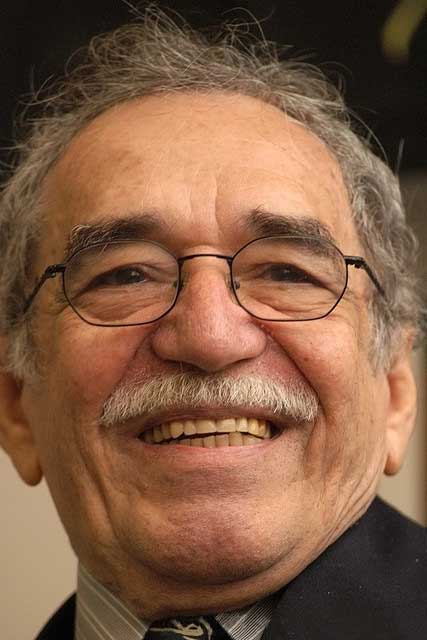
“Nobody who still knows that books can be fun should miss this novel [Cien años] and the other works of Gabriel García Márquez.”—Wolfgang A. Luchting, “Gabriel García Márquez: The Boom and the Whisper” (Books Abroad 44, Winter 1970)
Gabriel García Márquez (1927–2014) was born in Aracataca, Colombia, where his maternal grandparents raised him for the first nine years of his life. He began his career in writing as a journalist while studying at the University of Cartagena, writing columns for the university’s paper. In 1955 García Márquez published his first novella, La Hojarasca (Eng. Leaf Storm, 1972), a stream-of-consciousness story about a young boy’s first encounter with death. But it would not be until the publication of Cien años de soledad (1967; Eng. One Hundred Years of Solitude, 1970) that he would become the literary figure he remains to this day. García Márquez’s publications include the novels In Evil Hour (1970), Love in the Time of Cholera (1985), and The General in His Labyrinth (1989). His novellas include Chronicle of a Death Foretold (1981) and Of Love and Other Demons (1994), and his nonfiction includes such titles as The Story of a Shipwrecked Sailor (1970) and News of a Kidnapping (1996). His final publication was the novella Memories of My Melancholy Whores in 2004. García Márquez was the recipient of the 1982 Nobel Prize in Literature and is widely considered one of the most significant authors of the twentieth century.
In his presentation of García Márquez in the Winter 1973 issue of Books Abroad, nominating juror Thor Vilhjámsson said of the author: “García Márquez has invented a fantastic imaginary country of his own with its pertinent mythology of persons and events, recurrent in all his books, linked by allusion, with themes taken up and carried from one book to the other and elaborated upon, causing García Márquez’s mythological world to emerge and expand, addicting readers to a fantasy and humor that titillates the imagination and makes the reader eager for more.”
NEUSTADT PRIZE 1972 |
||||
|---|---|---|---|---|
| JURORS | FINALISTS | |||
| François Bondy(Switzerland) | Zbigniew Herbert (Poland) | |||
| T. Carmi (Israel) | Vasko Popa (Yugoslavia) | |||
| Odysseus Elytis (Greece) | Claude Simon (France) | |||
| Jovan Hristic (Yugoslavia) | Harold Pinter (England) | |||
| Kai Laitinen (Finland) | Paavo Haaviko (Finland) | |||
| Camara Laye (Guinea) | Birago Diop (Senegal) | |||
| Vera Linhartová (Czechoslovakia) | Nathalie Sarraute (France) | |||
| Kenneth Rexroth (USA) | Czesław Miłosz (Poland) | |||
| Jorge de Sena (Portugal/Brazil) | Carlos Drummond de Andrade (Brazil) | |||
| Fernand Verhesen (Belgium) | Octavio Paz (Mexico) | |||
| Thor Vilhjálmsson (Iceland) | Gabriel García Márquez (Colombia) | |||

